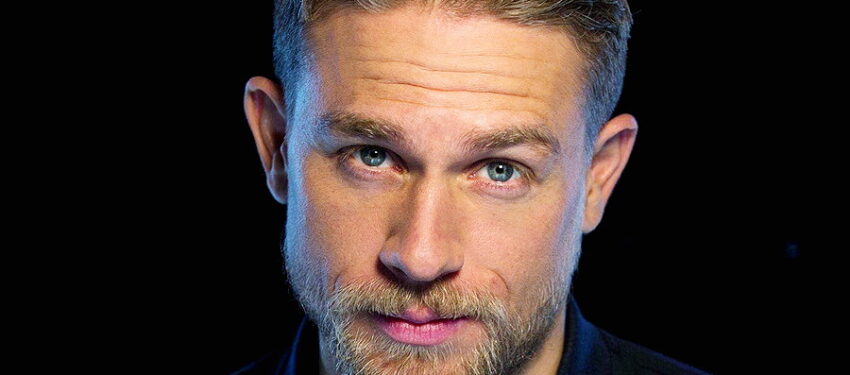Neither director wanted him, but then they took a look at him, and then he opened his mouth.
He was hungry, and pushy, and the director Guy Ritchie liked that. He was gorgeous, and charmed women and children, and the director James Gray liked that, too.
Charlie Hunnam is not exactly a household name in the United States, at least not just yet.
He is known in some quarters as the guy who backed out of “Fifty Shades of Grey.” He is known in others as the conflicted capo of a California motorcycle gang in the FX series “Sons of Anarchy.” Four years ago, he starred in Guillermo del Toro’s “Pacific Rim,” and a decade before that played a menacing albino Confederate in Anthony Minghella’s “Cold Mountain.” Across the pond, in his native England, he rose to fame as a teen, playing a coltish gay youngster in the breakout series “Queer as Folk.”
But all those parts did not make a breakout star of Mr. Hunnam, 37, not least because he has been enormously picky about roles. He once spent a few lean years living off an organic marijuana crop he cultivated in his Los Angeles home, he said, rather than taking jobs that left him cold.
“I can’t even believe I’m being this candid,” Mr. Hunnam said as he revealed his pot-growing days — they’re behind him now, he swears — over a lunch of seared halibut and spring peas at the Four Seasons in Lower Manhattan a few weeks ago.
Tall and V-shaped, blond and chiseled, Mr. Hunnam has been likened to Brad Pitt and Channing Tatum. Yet he didn’t carry the “here we go again” ennui or whiff of wariness that often permeates the air around celebrities. This despite the fact that he was in the thick of the press tour for “King Arthur,” the $102 million film Mr. Ritchie directed and helped write, in theaters Friday, May 12, with Mr. Hunnam as its star.
Scant weeks before, he had been out promoting Mr. Gray’s “The Lost City of Z,” which he starred in, too. By every appearance, the lean years are no more. Yet both films nearly eluded him.
Mr. Ritchie flatly refused to consider Mr. Hunnam for Arthur at first, not least because he envisioned a king with an action-figure physique. “There’s more fat in a chip than there is on Charlie,” Mr. Ritchie said in an interview. “I just didn’t think he was robust enough.”
Infuriated, Mr. Hunnam flew to London from Los Angeles to force a meeting that Mr. Ritchie couldn’t say no to because Mr. Hunnam’s manager is his close friend. Looking back, Mr. Hunnam said he was not sure how much he wanted the role; he just wanted to be seen. Yet within five minutes, Mr. Ritchie said, “I knew I loved him.”
The director continued, “When someone’s hungry and pushy and they can back it up with something, then it’s a wonderful conspiracy.” Mr. Hunnam was smart, meticulous and dived deep. He also hit the gym like a madman and, soon enough, looked like He-Man.
This in turn dismayed Mr. Gray, when, eight days after wrapping “King Arthur,” Mr. Hunnam showed up for a costume fitting for “Z.” The film is about Percy Fawcett, a real-life British explorer who disappeared in the Amazon in 1925 while searching for signs of an ancient civilization.
Mr. Hunnam recalled that the “Z” director “looked in abject horror at my body and said, ‘This is a disaster, this is nowhere close to the physicality that we need for Fawcett.’” Mr. Hunnam added: “I just looked like a superhero, you know? Stupid.”
All of which he managed to blame on Mr. Pitt. When he took his shirt off in “Fight Club” and “Snatch,” Mr. Hunnam said, he created “a new expectation of what a man should be.”
That said, Mr. Pitt was the one who got Mr. Hunnam the part of Fawcett. Mr. Pitt’s production company, Plan B, had tapped Mr. Gray, whose previous films include “The Yards” and “We Own the Night,” to write and direct the picture.
Mr. Pitt was to star but dropped out because of scheduling conflicts; then the lead was to be Benedict Cumberbatch, but his wife was about to give birth. Plan B suggested Mr. Hunnam, at which point Mr. Gray balked.
“I thought he was a Hells Angels kind of guy, which makes me feel like an absolute fool beyond comprehension,” Mr. Gray said, in a phone chat.
After learning Mr. Hunnam was British, Mr. Gray invited him over for dinner, making spaghetti and meatballs, which Mr. Hunnam dutifully ate even though, as Mr. Gray later learned, he avoids carbs.
“He was so warm and funny. My wife thought he was handsomest man in the world, and my son was obsessed with him,” Mr. Gray said. “‘Lost City of Z’ is all about feelings of inadequacy about class. He understood all that stuff, and spoke to it directly.”
For Mr. Gray, that was key. Like his character in the film, Mr. Hunnam burned with the need to prove himself. Continue reading NY Times: Charlie Hunnam: Pushy When It Counts (Picky, Too)





 DA MAN: Hi, Charlie. “King Arthur: Legend of the Sword” is set to hit theaters this May. What would you say is the number-one reason to go see this movie when it comes out?
DA MAN: Hi, Charlie. “King Arthur: Legend of the Sword” is set to hit theaters this May. What would you say is the number-one reason to go see this movie when it comes out?